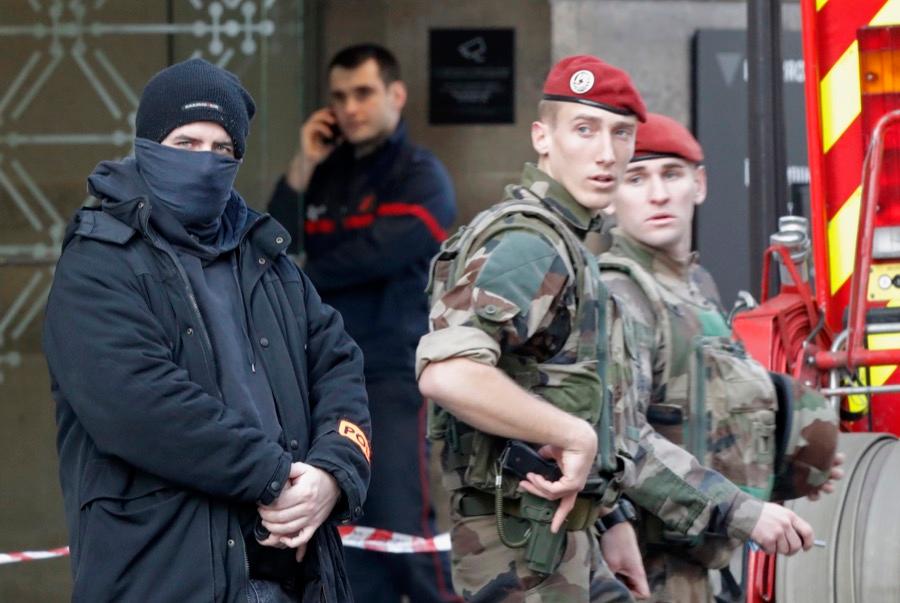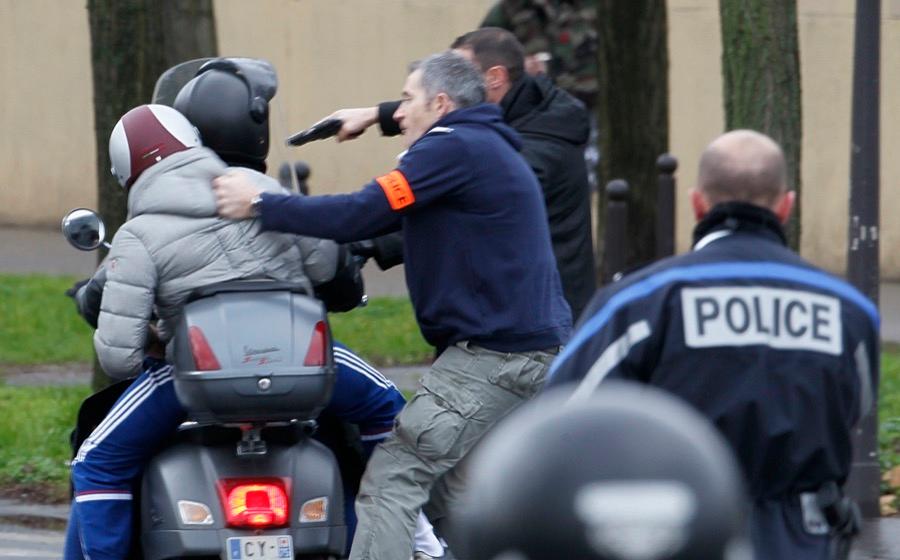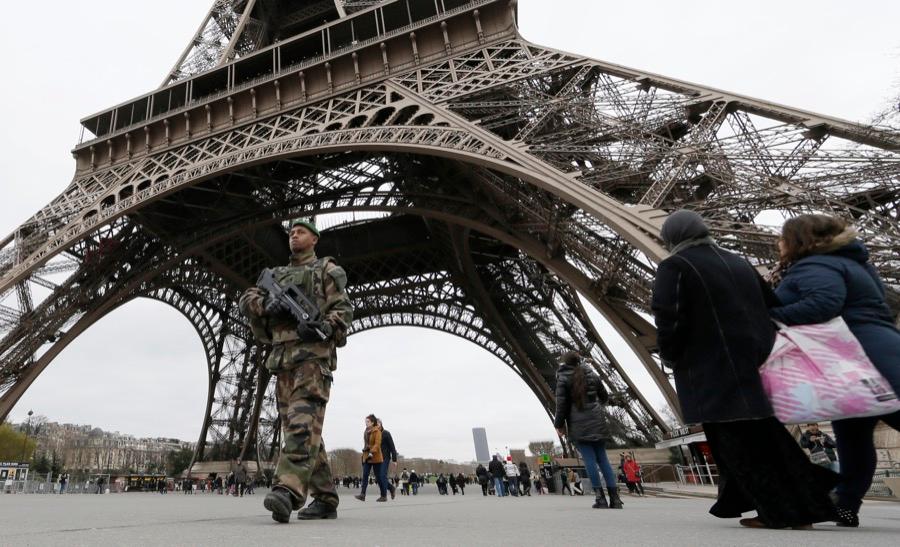Trump’s immigrant ban has echoes of France’s counterterror measures
It's now a usual sight to see soldiers patrol the streets of Paris.
With numerous legal challenges underway, the final outcome is uncertain for President Donald Trump’s executive order to bar travelers from mostly Muslim countries and suspend America’s refugee program for months.
In defense of the policy, administration officials have emphasized that “individuals are temporarily inconvenienced,” as State Department spokesman Kevin Brosnahan said Friday. For the protection of Americans, Trump adviser Kellyanne Conway said on Jan. 29, “it’s a small price to pay.”
Although many Americans apparently agree with it, the order triggered mass protest in the US and abroad and angered foreign leaders and human rights advocates.
But the US has something in common with one ally that’s been critical of Trump’s migrant ban. Like America, France has also been hyperfocused on domestic terrorism after several attacks, including an incident on Friday in Paris. And like the US government, rights groups say, French authorities have clamped down on certain freedoms in the name of public safety.
“In the name of fighting terrorism, measures taken are often disproportionate,” said Dominique Curis, who works with Amnesty International in France.
There’s pressure on governments, she said, to provide fast and simple solutions, leading to an “accumulation of exceptional measures,” restricting individual liberties.

Curis has seen this in France, too. There are parallels between France and the US in the language of security emergency measures and the price of safety.
French authorities are investigating Friday morning’s suspected “terrorist incident,” in which a man with a machete attacked a military patrol at an underground shopping mall near the Louvre. Soldiers patrolling France’s city streets are just one of several temporary responses taken by the French government that have gradually been extended.
Another is the “state of emergency” declared by French President François Hollande immediately after the November 2015 attacks in Paris. That status, extended at various times for over a year with parliament’s consent, gives police greater latitude in their operations with the goal of preventing more violence. It lowered the burden of proof police needed to conduct searches and place people under a form of house arrest without bringing charges.
The reasoning, explained Patrick Skinner, a security consultant with the Soufan Group, is that in the immediate aftermath of an attack, “Police realize that while they know a lot, they obviously don't know enough, they go into disruption mode.”

In the wake of terror attacks, the French government notably made no changes to its policy of welcoming thousands of refugees, and has called on citizens to help house them.
Yet hard-right politicians have gained support across Europe while blaming refugees and immigrants for insecurity and other problems. French nationalist candidate Marine Le Pen, who’s said she sees hope in Trump, is among them.
President Hollande said last weekend that “The kind of discourse now coming from the United States encourages populism and even extremism.”
However, domestically, France’s state of emergency resulted in thousands of warrantless searches and hundreds of predominantly Muslim men put under a form of house arrest, without bringing charges against them.
‘My life can’t pick back up’
France also argued that overriding security concerns justified the incursion on individuals’ rights. Authorities eventually released all but about 60 people — still detained without charges. But even the temporary disruption for those no longer forced to stay home had lasting effects.
A man who asked to be called Mehdi, because of fears about the personal repercussions of his story becoming public, was employed as a livery cab driver when police placed him under indefinite home detention, with requirements to report to the police stations three times a day, but also a curfew and a ban on leaving his municipality.
Mehdi immediately had to call his supervisor at his job to explain why he would not be in.
“I explained as honestly as possible,” he said, “that I had just been placed under house arrest on the accusation that I was a terrorist and suspected of radicalism.”
Unsurprisingly, between that news and his now indefinite absence, his supervisor told him not to come back to work.
Curis, who handled cases like Mehdi’s for Amnesty, said others lost their jobs as well or had to halt a job search.
“There were obviously financial implications,” Curis noted, “because when you’re not able to work, that can have fairly dramatic repercussions.”
“You can no longer fulfill family obligations,” she added. “An entire family’s routine is overturned.”
Shortly after his release last spring after three months of house arrest, Mehdi explained that it had already ended his relationship. His partner, he said, “couldn’t understand what was happening.”
“My life can’t pick back up essentially as it was before,” he said. After months of seeing police check in at the house, “the neighbors look at you differently when you offer to carry their groceries.”
Mehdi was never charged with a crime. Only a handful of cases like his have led to prosecutions.
There is, of course, a stark difference between having to tell your boss you’re a suspected terrorist and being held up at the border over travel restrictions controversial enough to provoke mass demonstrations at American airports.
The common denominator, though, Curis said, is that administrative actions being taken in the name of fighting terrorism “reverse the burden of proof” from the government to the individual. Ultimately, she notes, they have punitive impacts, “on people who are innocent just until proven guilty.”
“It’s on the people now,” she said, “to prove that they are innocent.”
Journalist Emma Jacobs reported from Paris, France.
Every day, reporters and producers at The World are hard at work bringing you human-centered news from across the globe. But we can’t do it without you. We need your support to ensure we can continue this work for another year.
Make a gift today, and you’ll help us unlock a matching gift of $67,000!
